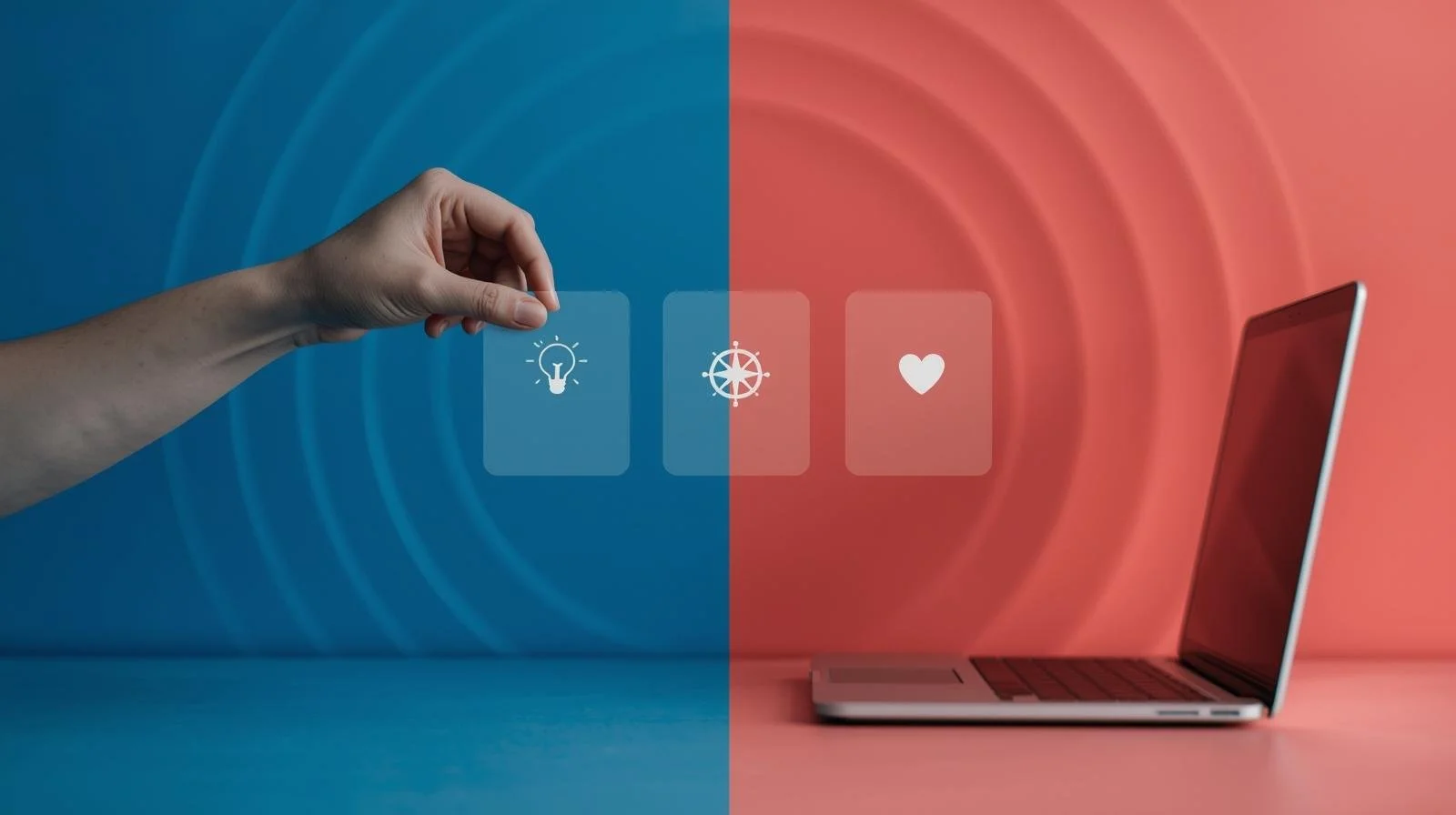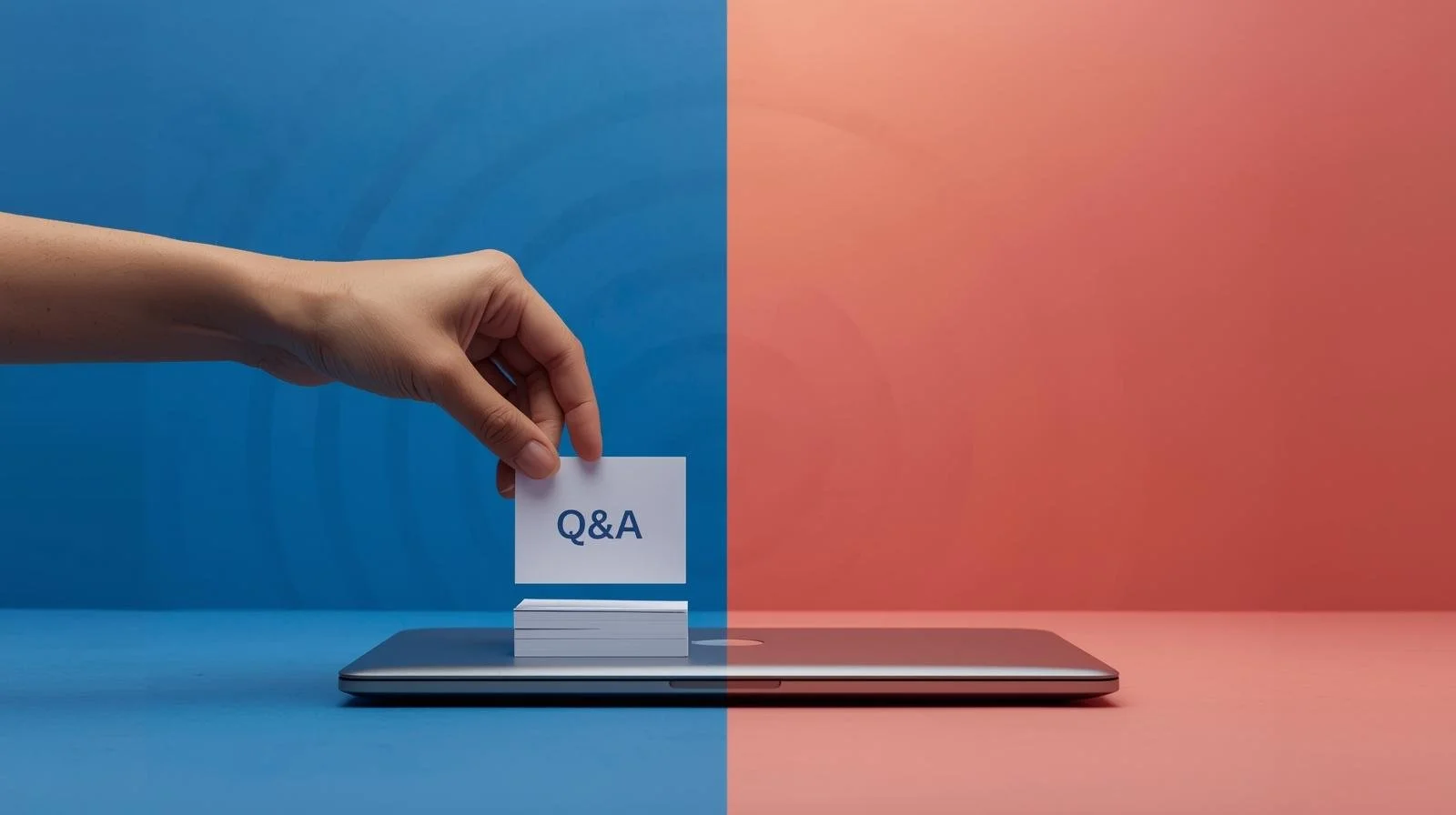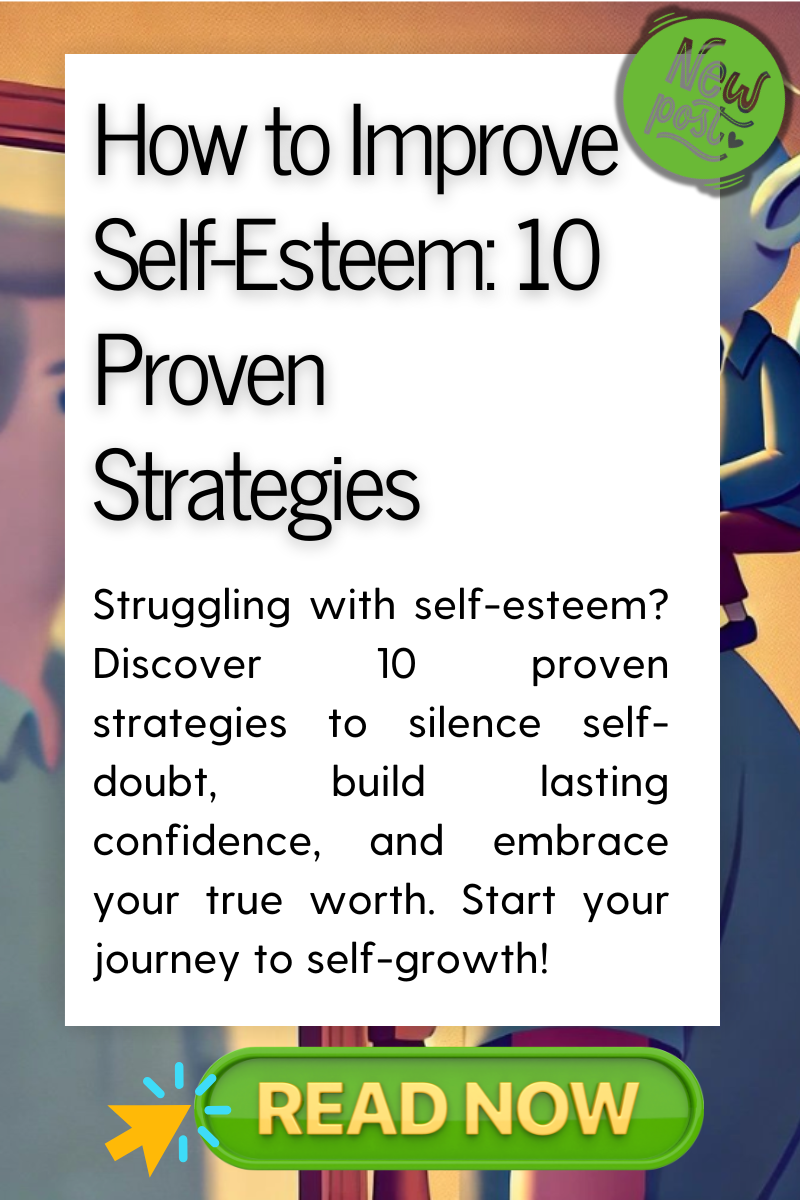How to Find the Best Online Life Coach Near Me
You’ve probably searched “online life coach near me” after one too many nights of feeling stuck—not lost exactly, but hovering between what you want to change and what you’re still trying to understand. You’ve read the books and listened to the podcasts, yet something in your routine still feels flat, like there’s a gap between insight and action.
That’s where a coach can help—not with a pep talk, but with a way to translate clarity into momentum. Online life coaching isn’t about distance; it’s about direction. It creates a focused space to untangle your thoughts, sharpen your priorities, and design next steps with someone trained to listen beneath the noise.
Whether you’re navigating a career change, redefining personal goals, or craving a steadier sense of self, finding the right coach “near you”—yes, even online—can turn possibility into progress. This guide walks you through what to look for, what to avoid, and how to choose an online life coach who truly fits your story.
Why “Near Me” Still Matters Online
It’s easy to assume geography doesn’t matter in the digital age. After all, coaching sessions can happen from anywhere with a screen. But “near me” isn’t about proximity—it’s about connection. When you look for a coach close to your time zone, your culture, or even your rhythm of life, you build trust faster.
An online life coach who understands your environment can speak your language—literally and emotionally. That sense of shared context helps personal growth happen on a deeply personal level. You still get the flexibility of online platforms while keeping the intimacy of a real partnership focused on positive change and your unique needs.
Coach vs Therapist vs Counselor: What’s the Difference?
It’s a common question. Therapy dives into healing—addressing mental health conditions through cognitive behavioral therapy, positive psychology, or other evidence-based techniques. Counseling helps you process and repair.
Life coaching, by contrast, focuses on what comes next. A certified life coach doesn’t diagnose; they strategize. Coaching lives in the future tense—helping you set meaningful goals, identify obstacles, and create change that lasts.
If you’re struggling with trauma, depression, or PTSD, a licensed professional clinical counselor or psychologist may be the right first stop. But if you’re functioning well and simply want to reach a higher level of clarity, motivation, or performance, an online life coach is often the missing link between reflection and action.
What an Online Life Coach Actually Does
Online life coaches act as partners in forward motion. They ask powerful questions, offer expert guidance, and help translate vague desires into specific goals. Together, you’ll outline a plan of action built on your values, strengths, and environment.
Many certified online coaches use structured goal setting and habit-tracking methods drawn from emotional intelligence research and solution-focused therapy. In a non-judgmental space, you’ll unpack what’s working, what isn’t, and how to move toward better results.
Unlike self-help books or motivational videos, coaching conversations adapt to your real life—your energy, personality, and schedule. That relationship building creates accountability and momentum you can feel between sessions.
Who Benefits Most from Online Coaching
Online coaching supports almost anyone ready for change—but certain groups thrive most. Young adults facing major life transitions often find it invaluable. It helps them clarify personal goals, strengthen professional skills, and build confidence in a world that moves fast.
Career changers use coaching to design a new direction and make each first step count. Parents returning to work, executives reassessing priorities, and creatives seeking balance all benefit from having a professional life coach who can adapt to their specific needs.
Whether you’re a recent graduate or someone questioning your current position, coaching gives you a structured process to align choices with the life you actually want.
Credentials That Count (Without the Alphabet Soup)
The coaching world is unregulated, which means credentials matter. Look for coaches certified through reputable organizations such as the International Coach Federation (ICF) or the International Association of Professional Recovery Coaches. These groups set standards of ethics and outline the core competencies of the International Coach Federations that define quality practice.
Strong coaches usually hold a Bachelor of Arts or Master of Arts degree in psychology, counseling, or a related field and have years of experience guiding clients through meaningful goals. Credentials alone aren’t everything—but they signal commitment, education, and accountability.
Online Coaching Approaches and Methods You’ll See
Every coach uses different approaches depending on training and personality. Some lean on motivational interviewing to spark self-discovery. Others integrate cognitive behavioral therapy principles or positive psychology exercises that build resilience.
You might encounter mindfulness-based programs, solution-focused therapy, or evidence-based practices drawn from neuroscience and emotional regulation studies. A few even weave in EMDR-inspired visualization to help clients reframe limiting memories.
Good coaches explain why a method works and adapt it to your present strategies and current behavior. The process is creative, flexible, and always rooted in your goals—not theirs.
How to Vet an Online Coach
Before investing time and money, take an intentional approach. During a discovery call, notice how the coach listens. Do they rush to advice—or stay curious? Ask about their first sessions and ongoing coaching sessions structure.
Review testimonials, pricing, and whether they offer both online coaching sessions and in-person sessions. Clarify what success looks like over a specific period of time. You should leave feeling inspired yet grounded, with a clear plan of action and measurable milestones.
A trustworthy coach will help you envision your next level without promising a miracle. They’ll remind you that transformation is collaborative—and that the best versions of ourselves emerge through steady, supported work.
Online Coaching Pricing, Packages, and Red Flags
Rates vary widely. Some coaches offer packages that bundle a set number of sessions; others work month-to-month. Online training programs or course completion certificates can look impressive but aren’t substitutes for real coaching experience.
Beware of anyone guaranteeing overnight success or claiming nonprofit status (as an exempt nonprofit corporation) without transparency. Ask for specifics—how many clients they’ve coached, what types of issues they address, and what results you can reasonably expect.
Coaching should feel like a partnership, not a pitch.
Finding Coaches “Near Me” (Search Tactics That Work)
Start with professional directories and online platforms such as the ICF coach finder, Psychology Today, or Thumbtack. Explore categories like career coaches, executive coaches, and relationship experts.
Check local business listings for coaches who serve your region virtually. Searching by zip code can still help uncover professionals familiar with your area’s pace and opportunities.
As you browse, note how each coach describes their process. Do they focus on new ways of thinking, the next journey you’re about to take, or the first time you’ll finally align your goals with your values? Choose someone whose language resonates with your vision for the different areas of your life.
Specialties and When to Add Therapy
Many online life coaches specialize. Some are certified prevention professionals supporting recovery education and positive change after addiction. Others work with clients managing post-traumatic stress disorder, anxiety, or personality disorders—but within clear ethical limits.
When deep trauma surfaces, coaching should complement—not replace—therapy. The strongest professionals maintain referral relationships with therapists or licensed clinical counselors, ensuring your mental health is always protected.
Sample Questions to Ask in a Free Coaching Consultation
What are your most important goals right now?
How do you measure progress?
What does a typical plan of action look like?
How do you create a non-judgmental space for honest reflection?
How will you tailor your process to my unique needs?
These questions help you gauge fit, values, and personality—long before money changes hands.
Mini Case Studies (Realistic Outcomes)
Case 1: Career Clarity
A marketing professional in her 30s used coaching to redefine personal goals and pivot industries. After six weeks of focused goal setting and accountability, she landed a role that aligned with her values and long-term growth.
Case 2: Young Adult Resilience
A recent graduate facing directionless months developed emotional intelligence tools through weekly online sessions. The result: improved confidence, better results at work, and a stronger sense of self.
Case 3: Relationship Reset
A client navigating a difficult life transition rebuilt communication skills and self-trust. Through consistent reflection and positive psychology techniques, they reached the next level of awareness that changed every relationship they had.
How to Start Today (The First Step)
Your first step doesn’t have to be perfect. Book a consultation, explore different approaches, and trust that curiosity itself is progress.
An experienced coach can help you see your current position with fresh eyes, introduce new ways of thinking, and map a new direction—one aligned with who you’re becoming.
The best life isn’t found overnight; it’s built conversation by conversation.
Key Insights: How to Find an Online Life Coach
When you search “online life coach near me,” you’re really looking for resonance… someone who gets you, even through a screen. Geography doesn’t limit growth; alignment does. The right coach dissolves that barrier and helps you design progress that feels real, sustainable, and yours.
Finding the right coach isn’t about scrolling endless profiles… it’s about the quiet click of recognition when someone’s words meet your moment. You don’t need a dozen certifications in your corner. You need one partner who helps you move with clarity and purpose.
Growth begins when you stop collecting information and start creating change. The right coach is a mirror, not a megaphone… reflecting what’s already strong in you and turning it into strategy.
Presence now defines possibility. The best “near me” connection might be a Zoom screen away… but the work still happens where it always has: inside you.
Reflection Prompt:
What area of your life would change most if you had a consistent partner in accountability and belief?
Ready to See What Coaching Can Do for You?
Want help applying this to your own life?
Josh offers coaching sessions designed for people ready to create meaningful change—from career transitions to confidence building, from personal growth to clarity in purpose.
You don’t need to figure it all out alone. Together, you’ll build a plan of action, stay accountable, and turn quiet goals into visible progress.
👉 Turn goals into results… claim your free consultation and get a focused roadmap.
Join the Conversation
This post is one side of the story… the other side is yours. What came up for you?
Online Life Coach Near Me: Frequently Asked Questions
1) How do I know if an online coach can actually help with my career goal?
Ask how they’ll translate your career goal into a concrete plan… timelines, milestones, and behaviors you can track. A coach with extensive experience will show examples of clients who moved into a better position, not just talk in generalities. You’re looking for clarity, not hype.
2) Do I need a certified professional coach, or is experience enough?
Credentials help you filter quickly… a certified professional coach signals training, supervision, and standards of ethics. Experience still matters, so look for both: solid qualifications and real-world client results that fit your specific life.
3) What’s the difference between personal life coaching and professional life coaching?
Personal life coaching focuses on your inner world… habits, confidence, relationships, and meaning. Professional life coaching centers on work… leadership, performance, and strategic moves. Most clients blend both because your career journey and your life changes influence each other every day.
4) How do I set particular goals that aren’t vague?
Start with one outcome that would create noticeable life enhancement in 90 days… then reverse-engineer the steps. Good coaches bring different perspectives so your particular goals become measurable rituals on your calendar, not ideas floating in your head.
5) Should I find a relationship expert for communication issues, even if my main focus is work?
If your workplace struggles mirror patterns at home, a relationship expert can help you build clearer boundaries and repair trust… skills that travel. Choose someone who sees growth as a creative partnership so your next conversations feel lighter and more honest.
6) Are there specific prerequisites to work with a coach?
Usually no specific prerequisites… beyond your willingness to do the work between sessions. If a coach lists advanced titles or affiliations—like co-founder of the NET Training Institute Center—verify them and ask how those experiences will support your particular goals.
7) Can coaches work with a number of life transitions at once… or should I focus on one?
You can tackle a number of life transitions, but progress is faster when you prioritize. Most people pick one keystone goal that unlocks others. The majority of life coaches will help you choose one focus so your energy isn’t diluted.
8) What credentials or methods should I ask about in the consult?
Ask about academic background, years or decades of experience, and coaching credentials. Inquire about methods: motivational interviewing, positive psychology, solution-focused work… and clarify boundaries around therapy. If you hear terms like eye movement desensitization (EMDR), remember that’s a clinical modality… only licensed clinicians should provide EMDR treatment.
9) How long does coaching take… and what does the process look like?
Think of coaching as a shorter-term process for clear outcomes… often 6–12 sessions to build momentum. A strong coach will explain first sessions, how they use practice clients early in their career, how ongoing sessions evolve, and how you’ll measure progress toward professional goals and a better version of daily life.
10) Where do I actually find reputable coaches near me online?
Start with trusted directories and comparisons—review the ICF Global Coaching Study to understand standards, then browse ICF’s finder, Psychology Today, and local listings. You can also talk with career counselors for referrals, especially if your focus is work growth. Many coaches run their own coaching practice; look for clear fees, case examples, and testimonials. If your goals touch recovery or prevention, a coach who is also a certified prevention professional can bring useful systems thinking.
11) Is coaching therapy… and what if deeper issues show up?
Coaching isn’t therapy. If deeper clinical needs emerge, a coach should refer you to a licensed provider and, with your consent, coordinate care. The best outcomes come from the right tool for the right job… coaching for forward motion, therapy for healing.
Still Have More Questions For an Online Life Coach?
Let’s test the fit with zero pressure. Book a free consultation and bring one goal you care about. We’ll focus it, map next steps, and choose the simplest way to start… today.
👉 Let’s move forward… schedule a free consultation and map your next steps.
Best Life Coaching Books for Personal Growth and Positive Change
1. Atomic Habits by James Clear
A modern classic on continuous improvement. Clear’s approach shows how small actions create positive change in different situations. Perfect if you want to start new ways of showing up without the burnout.
2. The Untethered Soul by Michael A. Singer
A calm, spiritual deep dive into awareness. Singer reminds us that an effective way to reach the next level of growth begins with releasing resistance to change initiatives—especially the ones happening inside you.
3. Designing Your Life by Bill Burnett & Dave Evans
A favorite among coaches. This book applies design thinking to personal and professional transitions, helping you craft your best life with creative structure and clarity.
4. Maybe You Should Talk to Someone by Lori Gottlieb
A beautiful memoir blending coaching and mental health insights. It’s a reminder that even experts face future changes and that healing and progress often walk side by side.
Ready to take the next step toward your own best life?
Pick one book… take one note… bring it to your free consultation. We’ll turn your insight into action and map the simplest next step.
👉 Make progress today… book your free consultation and leave with a clear plan.
Find the Best Online Life Coach Near You: Start With a Free Consultation
You don’t need a perfect plan… you need a first step and a new journey. If you’re navigating career goals, life transitions, or personal growth, professional life coaching can turn clarity into momentum. As a certified life coach, I’ll help you focus your particular goals, map simple actions, and stay accountable until the results are real.
Sessions are online and flexible, tailored to your unique needs and schedule. We’ll keep it practical, honest, and measurable… so you can make steady progress in the areas of your life that matter most.
Ready to move forward?
👉 Turn clarity into action. Book your free consultation and get a simple plan.


























